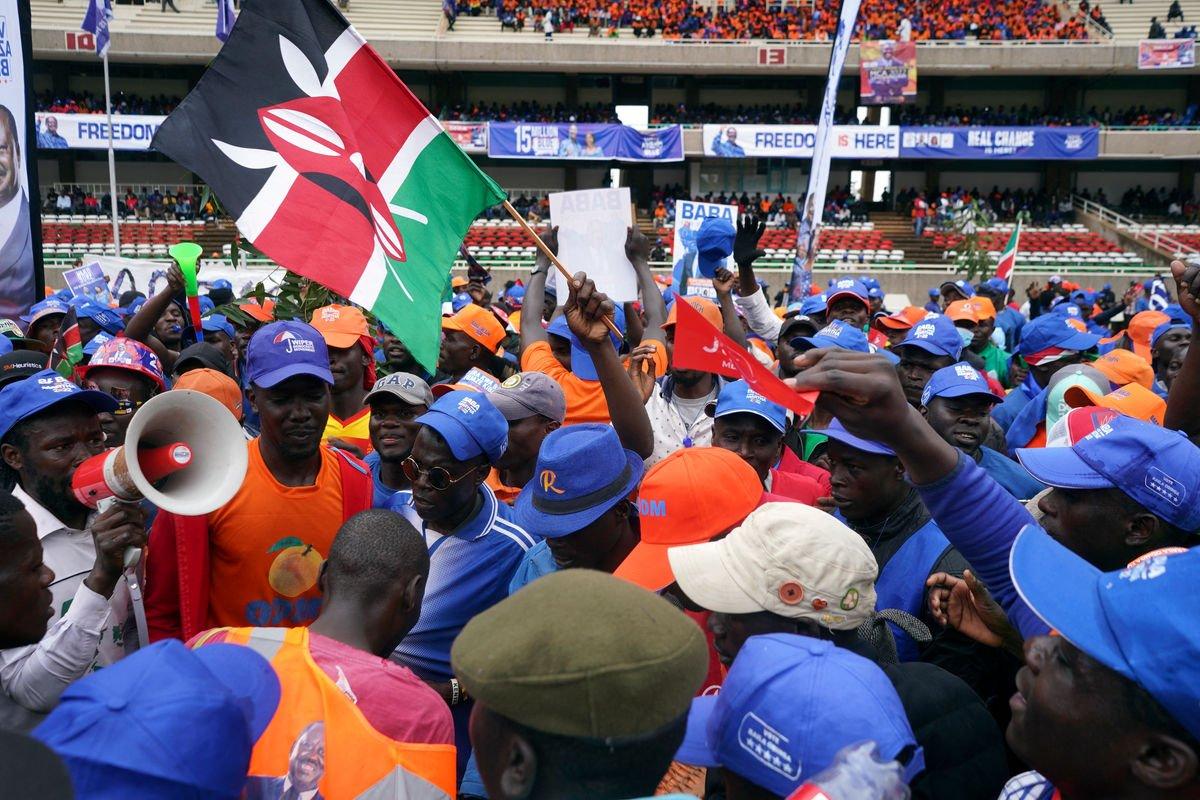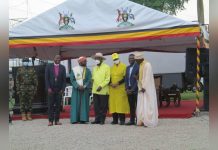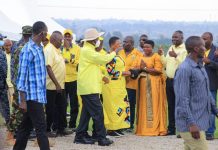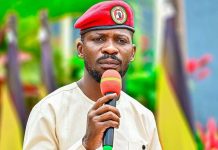Africa-Press – Uganda. As Kenya prepares to go to the polls on Tuesday, Ugandans are looking anxiously at their eastern neighbour in hope that the outcome from the ballot—or more accurately any contestation—doesn’t compound their soaring living costs.
Heading into Tuesday’s poll, there has been almost complete unanimity from pollsters that a first-round victory for the key protagonists—Mr Raila Odinga and Dr William Ruto—will be a work of considerable difficulty. Various opinion polls (TIFA—Mr Odinga 46.7 percent, Dr Ruto 44.4 percent; Ipsos—Mr Odinga 47 percent, Dr Ruto 41 percent; and Infrotrak Mr Odinga 49 percent, Dr Ruto 42 percent) underlined the Herculean task the leading candidates have in scoring a decisive mandate in the first round.
Ugandans, who are alive to the fact that they catch a cold whenever Kenya sneezes after electioneering, have been able to maintain a bemused distance from it all as Mr Odinga and Dr Ruto traded blows. They, however, found themselves caught in a swirling vortex of emotions this past week following a barb from the Azimio la Umoja One Kenya Coalition flagbearer.
“People have continued to compare Kenya with countries around us. ‘Oh, look at Somalia, look at Ethiopia, look at South Sudan, look at Uganda and so on’,” Mr Odinga said in an August 4 stump speech, adding, “Kenyans do not want to be compared with the worst in the world. We should be compared with the success stories.”
Many Ugandans chafed at the subordinate position Mr Odinga handed them. Others called out Mr Odinga since a courtesy call he made at State House Entebbe at the backend of May suggests that his relationship with one of the “worst in the world” isn’t marked by formality and emotional distance.
When Mr Odinga met President Museveni in the sleepy town of Entebbe on May 19, the former said discussions held “aimed at forging stronger ties moving into the future.” As a net importer of goods, Uganda relies rather heavily on the Northern Corridor. The multimodal trade route links landlocked countries in the Great Lakes Region to Kenyan maritime sea port of Mombasa.
Uganda occupies a plum role in making the link to the hinterland. When the 2007 elections in Kenya precipitated violence, Kampala came to the conclusion that a sole reliance on the route can be pernicious in its consequences. State actors in Uganda have since been keen to indicate the country’s alternative strategies whenever Kenya heads to the polls.
Alternative strategy
In a July 13 statement to the House, Mr Peter Lokeris—the junior Minerals Development minister—made clear that the Central Route via Tanzania is now being explored more frequently. He said the Government of Uganda is encouraging “Ugandan [oil marketing companies] to further increase their usage of the Tanzania route so as to reduce risks associated with supply disruptions or interruptions.”
When the 2007 Kenyan elections went south—with Mr Odinga’s supporters contesting Mwai Kibaki’s win—Uganda experienced one of its worst oil shocks. A similar shock will do appalling harm, especially since people in Uganda are currently paying a princely sum for petroleum products.
During his televised address on Friday—the third of its kind in as many weeks—President Museveni reiterated his prescription of electric cars as a buffer against oil shocks.
“This fuel is likely going to remain high. Even when our petrol is here, we will have to sell it at the world price minus the transport costs,” Mr Museveni disclosed.
The panacea that Mr Museveni held out during his Friday address that straddled several hours was a sweeping assault at imported inflation, which the Northern Corridor is chiefly responsible for.
“The NRM answer to this imported inflation and fuel prices is to shift from petroleum cars to electric vehicles and motorcycles and then the train,” he revealed, adding, “We are going to spend the money we have on those. Other solutions are diplomacy and being frugal.”
Broad-based inflation
Mr Museveni also lashed out at what he called “the colonial and new-colonial economy of excessive importing.” He proffered belt tightening measures for households in Uganda barely a week after the Uganda Bureau of Statistics (Ubos) revealed that the headline consumer price index (CPI) rate rose from 6.8 percent in June to 7.9 percent in July.
Figures from Ubos show that households continue to come under growing pressure from rising prices at the petrol pumps as witnessed in the jump of petrol inflation to 56.1 percent from 45.9 percent in June.
The soaring prices of petrol and diesel triggered climbs in annual transport inflation to 4.6 percent from 1.7 percent in June and motorcycle fares inflation, which rose steeply from 3.2 percent in June to 18.8 percent in July.
There were also glaring one-month increases in food staples, providing further empirical evidence that the country is in the grip of an acute inflationary spiral. Matooke inflation (50.7 percent), cassava flour inflation (62.3 percent), and maize flour inflation (56.3 percent) all spiked significantly to breach the 50 percent mark.
“The vehicles that transport the matooke from Ntungamo are the ones that have increased the price because of fuel,” Mr Museveni said of the cost of living squeeze on Friday, adding, “Do not curse the banana growers from Ntungamo, Irish potato growers from Kabale…it’s the fuel and transport.”
Cost of living squeeze
Before Mr Museveni’s Friday night address, a section of lawmakers had urged the President to borrow a leaf from his opposite numbers in Kenya and Tanzania. A range of subsidies have been brought in to cushion households in both countries from inflationary pressures.
“We ask our President to do what President Uhuru Kenyatta did for Kenyans. He subsidised the cost of fuel and food. The cost of a kilogramme of posho was reduced by almost 50 percent. Fuel prices have also been reduced. This has led to cheaper transport. The same thing has been done in Tanzania,” Mr Godfrey Macho (Busia Municipality) said at a breakfast meeting on Thursday organised by Twaweza East Africa.
He added: “We call upon the Executive, which is the Cabinet, to give a statement concerning the skyrocketing prices in this country with immediate solutions. Because of the high fuel prices, everything has skyrocketed and made life very difficult for our people as of now to the extent that people at Busia border cross to Kenya to have breakfast and lunch since it is cheaper there.”
Mr Ismael Ssentamu, the programmes officer planning and strategy at Twaweza, had earlier revealed that a survey they conducted indicated that half of the households ran out of food between September and October last year. More than 37 percent, he further revealed, went through a day without eating.
“When we had this big problem…,” Mr Museveni said while speaking of rising commodity prices in the past tense on Friday, adding, “…the debate was that subsidise the petrol from outside countries and remove taxes. That one, we say no. We say this is not wise.”
The President’s insistence on long-term solutions means what happens in Kenya in the short term will be vitally important. Any sneeze will have Ugandans reaching out for their proverbial handkerchiefs.
Additional reporting by Jane Nafula and Benson Tumusiime
For More News And Analysis About Uganda Follow Africa-Press






